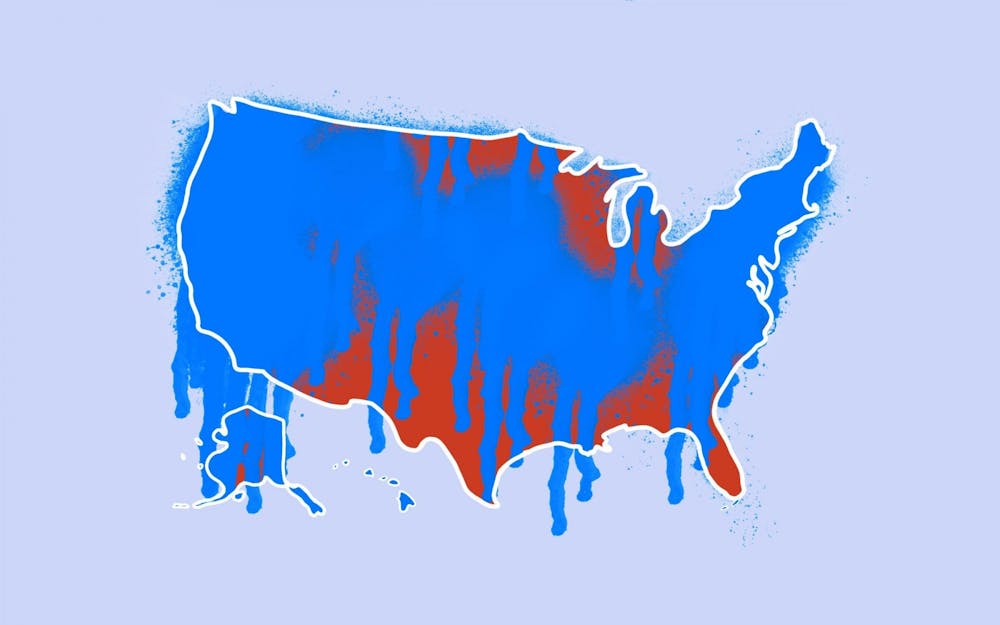For my birthday in 2020, all I wanted was to have the means (a form of identification and transportation) to get to the polls and vote. I was a first-time voter and had only turned 18 less than two weeks prior to Election Day.
To a lot of my peers, voting didn’t seem to matter. But I was thrilled to check that presidential box and vote for someone who could possibly become the first African American, Asian American and female vice president.
And now, Georgia voters have a similar election ahead with a second chance to make Democrat Stacey Abrams its first Black female governor. This hopeful possibility, in light of the shift in political attitudes in recent years, could set a new precedent for Georgia and Indiana alike.
Abrams ran in Georgia’s gubernatorial election in 2018, which ultimately and unfortunately resulted in her loss. Still, she fought a hard battle against current Republican governor Brian Kemp, even with the knowledge that she’d lose due to “an erosion of our democracy.”
Abrams fell short of Kemp by 1.4%, but Kemp could be the one falling short of Abrams next year for a couple of reasons.
In 2018, Kemp received the vote of about 90% of rural voters. However, former president Donald Trump endorsed Kemp during the 2018 election. Once the governor expressed his opposition to Trump’s call for recounts in Georgia in the 2020 presidential election, Kemp’s endorsement from Trump ceased to exist.
This makes white Republican support next year possibly difficult to achieve since Trump is currently trying to reshape the Republican party to support himself. Just this week, Trump declared that Kemp cannot win because “the MAGA base” will simply “never vote for him.” Kemp’s lack of support for Trump’s irresponsible demands may cost him a majority of rural voters.
Beyond this, there is a possibility of a split Republican vote in 2022 with a new candidate running against Kemp — former-Sen. David Perdue, R-Georgia. Perdue has the support of Trump because he is a member of the Republican party that has not yet disagreed with him.
But what does all of this Republican infighting mean for Abrams? Though Georgia has recently been considered a swing state, instability amid Abrams’s opposing party could put her a leg up. The victories of Sen.Jon Ossoff, D-Georgia and Sen. Rev. Raphael Warnock, D-Georgia also put the prospect of future Democratic wins in an optimistic light.
Although this Democratic optimism is detached from our state, Georgia’s gubernatorial race could have implications for a typically red Indiana.
One of Abrams’s goals is to help local Black communities prosper. While Indiana’s population is 9.9% Black or African American compared to Georgia’s 32.6%, Indiana can still learn from her grassroots campaign.
Abrams’s official statement for her candidacy has an underlying sense of unity and subsequent victory in the idea of “We are one Georgia.” Though 92% of the Republican party in Indiana is white, and blue votes come from more diverse areas like Indianapolis, the state has the capacity to become a swing or possibly blue state in the future, however distant that may be.
The willingness to not give up that is evident in Abrams’s campaign in the midst of loss brings hope to those who are ready for a future that is not defined by “zip code, background or access to power.”
This same message can translate a few states north to Indiana if we are willing to learn, grow and act in a more optimistic and community-driven way.
Elizabeth Valadez (she/her) is a freshman studying English and political science. She is a member of Chi Alpha.





